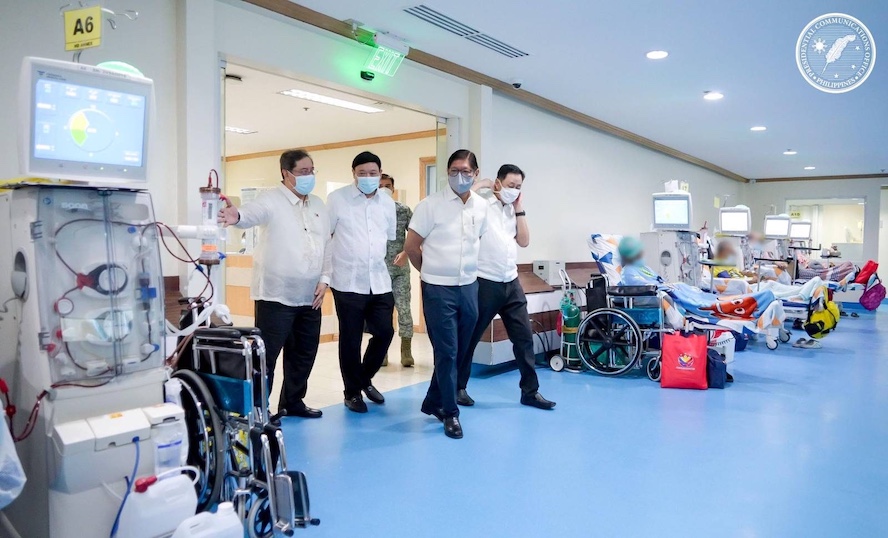
President Ferdinand R. Marcos Jr. had another productive week of being hands-on in addressing key issues in education, health, security, and tourism.
On June 16, President Marcos visited Epifanio Delos Santos Elementary School (EDSES) in Malate, Manila where he ordered government agencies to ensure a safe and smooth resumption of classes, while emphasizing the importance of student safety and financial ease.
President Marcos conversed with teachers and school officials on ways to improve their teaching and learning conditions.
The President also went to Flora A. Ylagan High School in Quezon City, where he held a teleconference with educators and officials from at least 10 remote schools nationwide and announced his administration’s efforts to connect all schools to the internet by the end of the year.
On the same day, the Chief Executive ordered government agencies to extend immediate support to overseas Filipino workers (OFWs) affected by the Israel-Iran tensions, ensuring no Filipino would be left behind should the said conflict escalate.
The President also committed fuel subsidies for the transport, farming, and fishing sectors to cushion potential oil disruptions and observed the Philippine National Police’s (PNP) improved 911 emergency response, now as fast as three to five minutes in Metro Manila.
On June 17, the President formally launched the implementing rules and regulations (IRR) of the Expanded Tertiary Education Equivalency and Accreditation Program (ETEEAP) Act.
The program offers a path for working Filipinos to complete their college degrees without leaving their job, recognizing their prior learning and professional experience as academic credits.
President Marcos said the law gives a “second chance” for those who had to pause their education due to financial hardship or personal circumstances.
On June 19, President Marcos delivered to kidney disease patients a new benefit package from the Philippine Health Insurance Corp. (PhilHealth) for post-kidney transplant care.
The new PhilHealth package which covers both adult and child patients after a kidney transplant was introduced following the President’s directive to make healthcare a top priority.
In the evening, President Marcos flew to Japan for a three-day working visit aimed at securing competitive jobs and business opportunities for the country.
On June 20, President Marcos held a series of business meetings in Japan.
President Marcos met with Japanese business leaders to boost tourism, infrastructure, and connectivity.
The President announced Japan’s Kanadevia Corporation’s investment plan for a Waste-to-Energy project in Manila and Tsuneishi Shipbuilding Co., Ltd.’s plan to build the world’s first methanol dual-fuelled KAMSARMAX vessel in Cebu.
The President also discussed space technology cooperation with Japan Aerospace Exploration Agency (JAXA) to utilize space technology for the benefit of Filipinos. | PND

